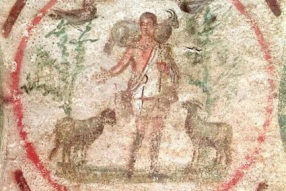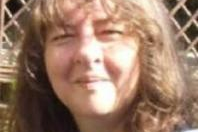Zimbabwe: Pius Ncube calls for support from South African churches
South African religious leaders could become the leading voice against the escalating human rights abuses in Zimbabwe after a series of meetings with their Zimbabwean counterparts, Christelle Terreblanche reported in the South African Sunday Independent yesterday. The Archbishop of Bulawayo, Pius Ncube, who has been visiting South Africa, asked the churches and the South African government to "abandon quiet diplomacy" and give Zimbabwean President Mugabe an ultimatum to enter into talks before the proposed 2005 election. "The international community must assist us to force these people," Ncube said. "There is no other way of dealing with such a dictator. There must be pressure from a whole lot of sides. We can't solve this problem alone." Ncube met senior clergy on his visit, including the Anglican Archbishop Njongonkulu Ndungane, and Dr Molefe Tshele, general secretary of the South African Council of Churches (SACC). His visit coincided with an "in principle" resolution this week by the SACC, after a first-ever high-level meeting with Zimbabwean clergy, to send a team to Zimbabwe as soon as the organisation received a green light from all its counterparts. But the archbishop said he feared such a mandate might not be forthcoming. "People are dying now," he said. "We can't wait for protocol. It is their duty to respond urgently to the situation." Ncube warned that religious leaders in Zimbabwe were divided because Mugabe had "bought out" most of them and that the church in Zimbabwe could not play a meaningful role without help from neighbouring countries. "Mugabe gave them money and farms," Ncube said. "He even offered me a farm as part of his evil devices." He said clergy who were anti-Mugabe felt that they couldn't "make it alone". "We need urgent intervention from all churches, but South Africa is the closest historically," he said, adding that some Zimbabwean church leaders were bedevilling efforts to garner support. "They are trying to prevent South African churches coming in on the grounds that South Africa is playing 'Big Brother' and that they themselves know better about Zimbabwe." Dr Tshele said he agreed that the churches in South African and Zimbabwe should jointly become the voice against moral and human rights abuses, but any it would be necessary for the South African bishops to agree this at their next executive meeting on 17 March. Archbishop Ncube confirmed the existence of secret terror camps in which Mugabe's regime was teaching thousands of youths to torture and kill. He said he feared these youth militia were already being used to control political activity ahead of next year's elections with tactics similar to that of the war veterans. The only thing keeping the economy going was the South Africa's continued support of Mugabe's Zanu PF government, he said. "If they cut off the electricity and transport that will be the end of the game." Mugabe was dependent on South Africa and he owed millions in electricity bills, Ncube said. Archbishop Ncube's visit had another dimension, highlighting the fact that half his Bulawayo parish now lives in Hillbrow. Ncube said that South Africa was breaking its own laws by not giving the estimated two million Zimbabweans in the country refugee status and asylum. "Those people have a very rough time," he said. "They can't find employment, they are badly treated and often go without accommodation and food. They have to prostitute themselves." He called the South African government's attitude "very hypocritical". "On the one hand they are supporting Mugabe... and on the other will not give refugee status to Zimbabweans." Ncube said the situation in Zimbabwe was "deteriorating very, very fast", with thousands dying every month of starvation and HIV/Aids, while last year's inflation rocketed. "It's impossible to live. Something like 80 percent of the people are living below the poverty line," Ncube said, adding that the population was also overcome by a hopelessness and a moral decline. "People are now saying that the white government was less oppressive than the black government." Archbishop Ncube was due to hold a special Mass for Zimbabweans in Braamfontein yesterday. Source: ZW News/Sunday Independent


















